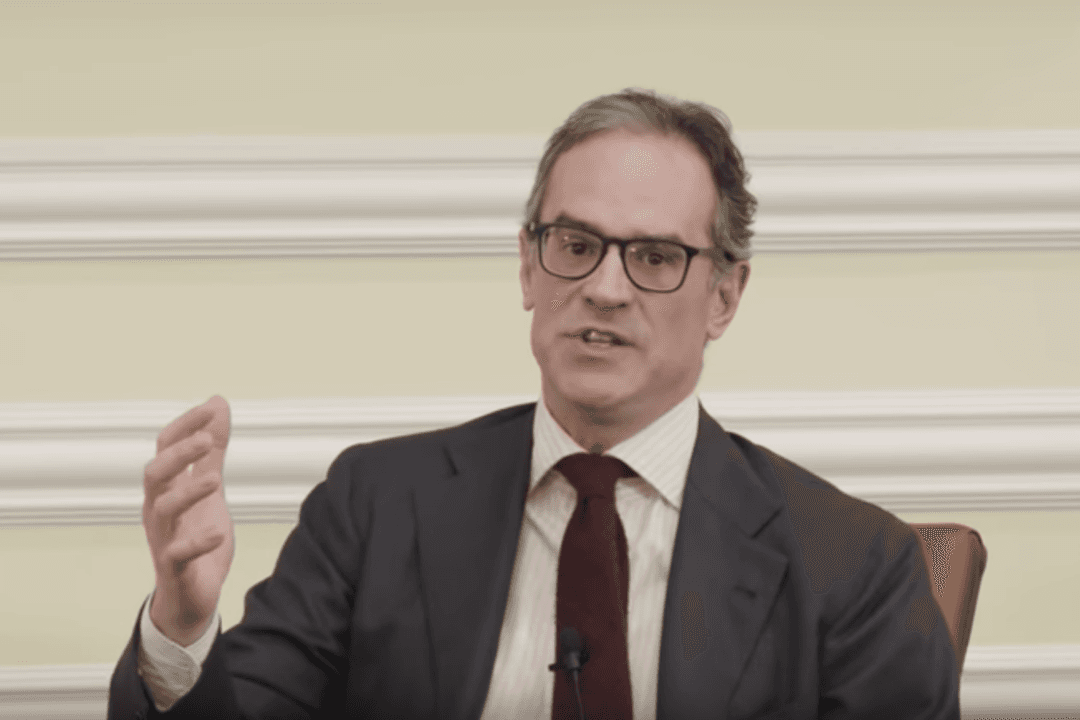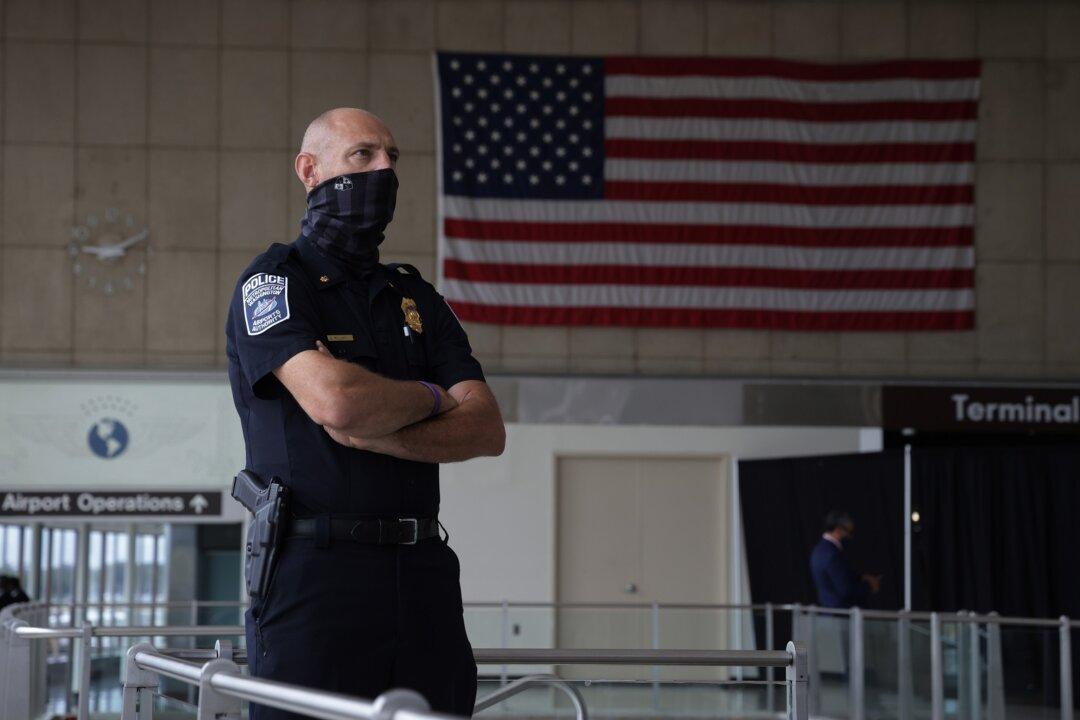WASHINGTON—A former Trump administration official laid out a comprehensive critique not only of the Left but of conventional conservatism, warning if the Republican Party failed to follow the president’s lead, it might ultimately find itself ousted from power for good.
In a public forum in the nation’s capital, former Trump Deputy Assistant to the President for Strategic Communications Michael Anton, now a lecturer and research fellow at Hillsdale College, told the story of his groundbreaking but intensely controversial essay, “The Flight 93 Election.”





